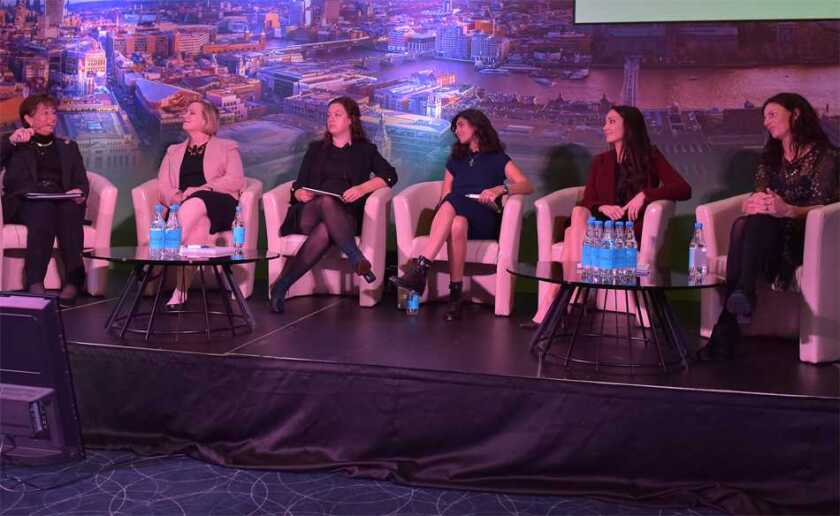Annette Murphy, the head of Zayo’s European operation, told Capacity Europe’s Empowering Women in Telco session that the gender ratio varies across the company.
“Some parts of the organisation are extremely diverse,” she said. In France Zayo’s team is 46% female, including engineers. “In some countries women take on more technical roles.”
Gagun Gahir, Telstra’s regional voice manager, said: “It’s not just men and women but also LGBTQ and less physically abled. Companies need to expand their recruitment beyond the Ivy League universities.”
Others on the panel, moderated by Stephanie Liston, founder of Women in Telecoms and Technology, spoke of the pressure they feel in largely male environments. “In a meeting of 60 senior managers I was one of two women. That was weird,” said Brynn Fowler, a director of Oracle’s network business. Tansy McCluskie, sourcing manager at Facebook, said: “When I’m the only woman in the room, I see only men.” Fowler added: “It gets lonely. I can’t do this alone.”
One member of the packed audience in the conference room asked how many senior women suffer from imposter syndrome – the feeling that one is unqualified for the role. McCluskie retorted: “The 3% who have never felt that are sociopaths.”
But what to do about the gender imbalance – and other imbalances in the industry? “Cast the recruitment net broadly,” said Kristine Olson-Chapman, managing director at TalkTalk Business. “Start early: I’m very passionate about graduate programmes.”
Both internal and external mentoring are important, said Olson-Chapman. Though Fowler warned that “it’s become more difficult as I move up to find mentorship. I am very direct: I ask for mentorship opportunities.”
She reinforced the call for “an extremely wide net” in recruitment. “I make a point to go out and proactively find people. You have a massive opportunity to create change,” she told the audience.
Gahir agreed, pointing out that Telstra requires a 50-50 balance in genders for recruitment shortlists – and if the numbers vary, the recruitment window is extended.
Olson-Chapman pointed out that a more diverse workforce is beneficial for a company, not only in terms of financial performance. “It makes you aware of when things aren’t quite right.” But she said that while TalkTalk has many senior women, there is less of a balance lower down. “We have goals,” she added.
Murphy said: “It has to come from the top down. The debate is about removing bias. It means a different selection of male and female and people from different ethnic backgrounds.”
Capacity Media has run women in telecoms panels at conferences for the past few years. What should it do in 2019, asked Liston.
“It would be nice not to need to have a panel about it,” said Gahir. “More diversity in the panels,” said Fowler. “Let’s talk about the future of technology.”
McCluskie added: “It’s not about the role of Capacity. It’s our role to encourage people to step up.” Murphy agreed: “I would like to see more female leaders [in the industry]. Once you get there it’s easier to maintain.”










